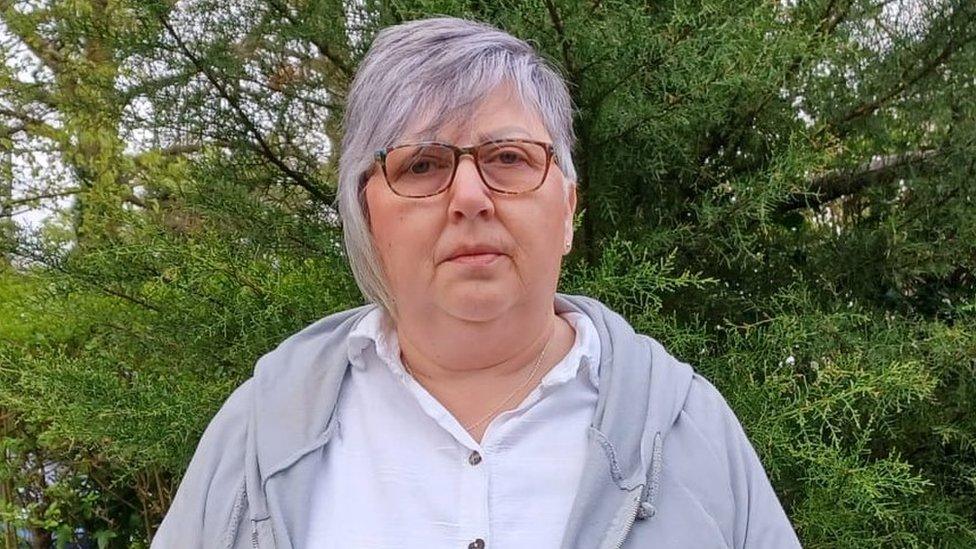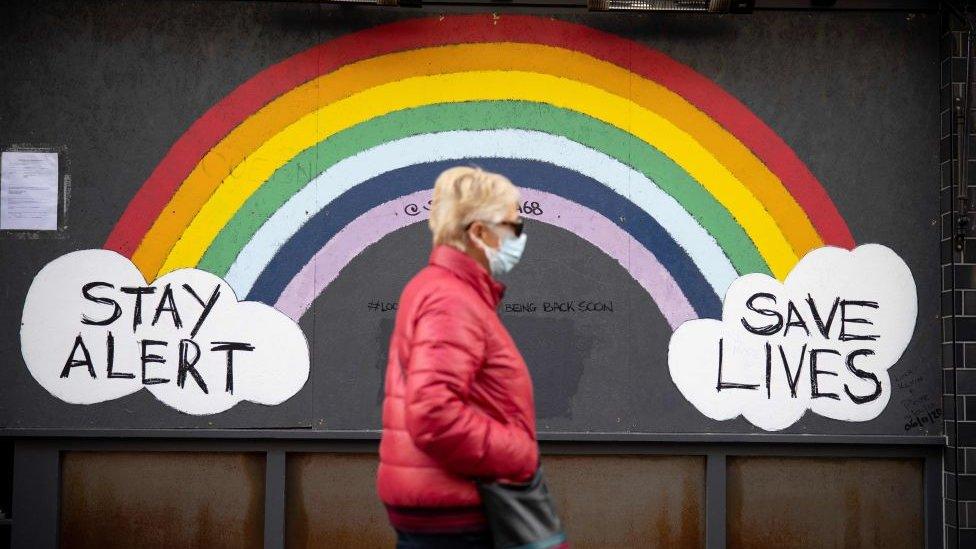Covid Inquiry: Sir David Sterling accepts Executive 'acted too late' in Covid response
- Published
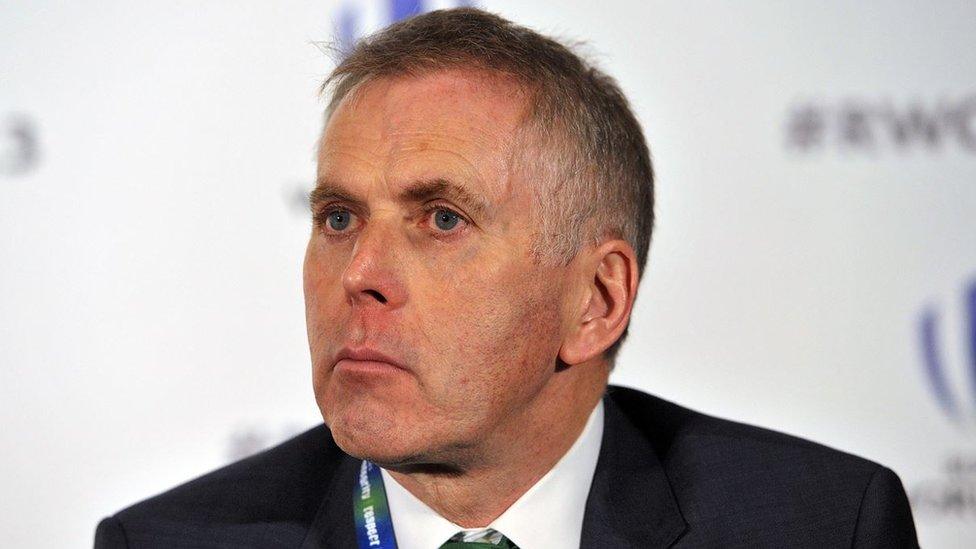
Sir David Sterling was critical of politicians at Stormont during the pandemic
The UK Covid Inquiry has been examining when exactly the NI civil contingency hub was triggered.
Its chair, Baroness Heather Hallett, put it to the former NI Civil Service head that it "seems too late to me - as the infection had already arrived in Northern Ireland".
Sir David Sterling said if the inquiry concluded that the Executive Office acted too late he will "accept that".
It began hearing evidence in Belfast on Tuesday.
The inquiry also heard on Wednesday that Sir David Sterling had advised a colleague that if it came to either "annoying the Cabinet Office or the chief medical officer (CMO) [Prof Sir Michael McBride]" he advised the Cabinet Office.
He was referring to a delayed response from Northern Ireland to an information request from the Cabinet Office in London.
Counsel to the Inquiry, Clair Dobbin KC put it to Sir David that "not incurring his (CMO) annoyance was the most important thing?"
To which Sir David replied that he was aware how that comment came across, but it was said in the moment and at a time when he knew the information required was not available.
"It was an instantaneous response to something that came across my desk and I wouldn't read too much into it," he said.

The chief medical officer, Prof Sir Michael McBride, played a prominent role in NI's Covid response
Sir David told the inquiry that when the extent of the spread of Covid-19 was becoming clearer at the end of January 2020, the Executive Office had looked to the Department of Health as the lead department to provide advice.
He added that while there was an expectation that the Department of Health would take the lead, there was also an acknowledgment that there was a reliance on all departments to prepare their response plans.
Sir David said that Northern Ireland had put its faith in the UK government's ability to plan and manage the crisis given the scientific and other resources they had available to them.
Referring to his evidence, Sir David recalled a message from former 10 Downing Street adviser, Dominic Cummings, in those early weeks of the pandemic that the virus was "sweeping the world and that China was "probably losing it".
Earlier, Sir David told the inquiry the leaking of papers from within the Executive had become "increasingly worse and difficult".
He said that meant ministers often brought papers to the table "as late as possible".
"That made it harder to do business efficiently," Sir David said.
Sir David was in the role at the start of the pandemic January 2020 and was also head of NI's Executive Office.
His office was responsible for providing communication support to the first minister and deputy first minister and other departments.
Sir David added that leaking also meant ministers were reluctant to bring forward sensitive items.
When asked about decision making he said there was a "reluctance to reconfigure public services in health and education" which "may give rise to a negative public reaction".
'Stagnation and decay'
Sir David said the absence of a power-sharing government between 2017 and 2020 left the health service in a weaker position than was ideal to ideally to deal with a pandemic.
He told the inquiry it was "totally unacceptable" that civil servants were left to run a government without the direction normally expected from ministers.
"It had consequences for public services and left them in a very bad state and in stagnation and in decay," he added.
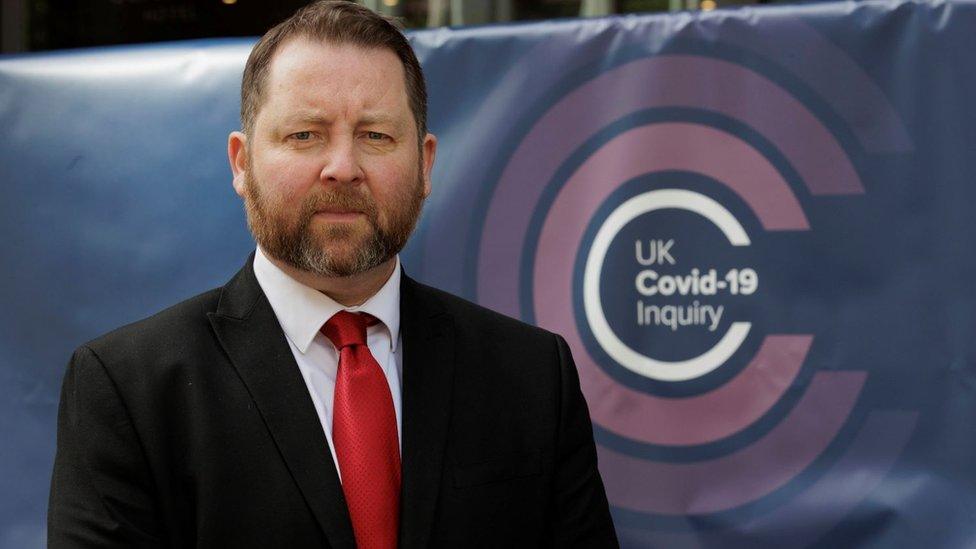
Eddie Lynch gave evidence during the inquiry's second day of Belfast hearings
Sir David told the inquiry he had been more used to dealing with emergencies like weather events which did not require the same level of ministerial involvement.
"Clearly the pandemic was of a completely different order of magnitude," he said, adding that in 42 years of service he could not remember a more "demanding or challenging" period.
Before the first lockdown was announced on 23 March 2020, he said: "We were trying to work in a very fast-moving environment where things were changing rapidly on a daily basis."
Mr Sterling also told the inquiry he thought it was "reasonable" to take the lead from the UK government given their scientific and other resources.
He said the chief medical officer was "building advice that was based on an assumption that the transmission of the virus would lag by anything up to two weeks between it coming to NI".
He said this did not create any "complacency" but meant they "recognised that they might have a little bit more time just to do the things that would need to be done".
'Reckless'
Earlier, the Commissioner for Older people Eddie Lynch said a decision to discharge residents from hospitals back into care homes without testing was "reckless".
The consequences needed to be looked at, he added.
Mr Lynch said there was a feeling that hospitals were being "cleared out" for a "possible surge" in patients.
He said Northern Ireland was not prepared for the pandemic and that "we were all dealing with something entirely new".
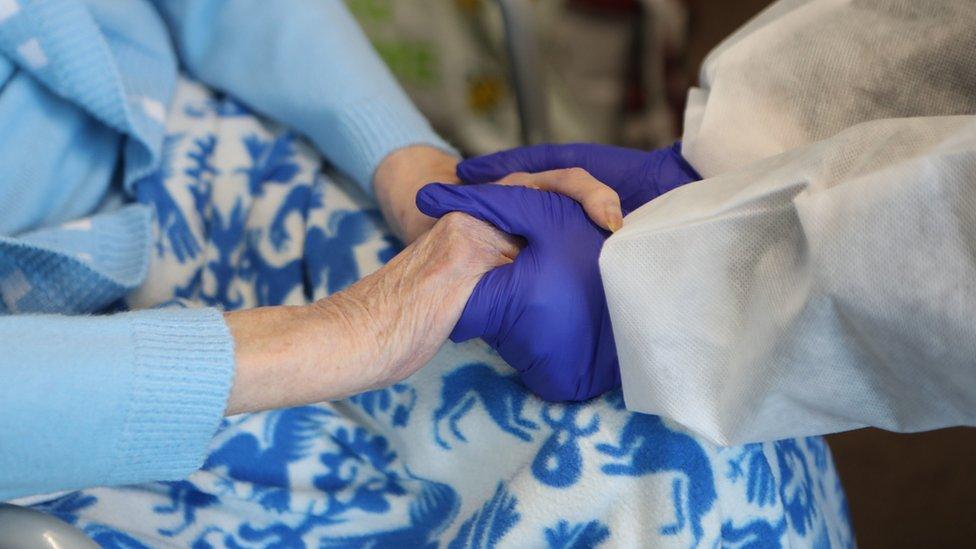
As of March 2021, Northern Ireland had an over 60s population of just under 440,000
Mr Lynch said his office was contacted by concerned families and his team often felt "frustrated" that they could not get answers quickly enough.
When asked by the Chair, Baroness Heather Hallett, what could be done in the future, Mr Lynch said the introduction of visiting pods and safer spaces for families to meet loved ones needs to be expanded and put in place earlier on.
As of March 2021, Northern Ireland had an over-60s population of just under 440,000 or about 23%.
Gerry Murphy of the Irish Congress of Trade Unions (ICTU) told the inquiry that the "voice of the worker" was not heard, especially during the start of the pandemic.
Mr Murphy said no one reached out to the union to advise or to seek guidance and he said they were often informed as "decisions were played out".
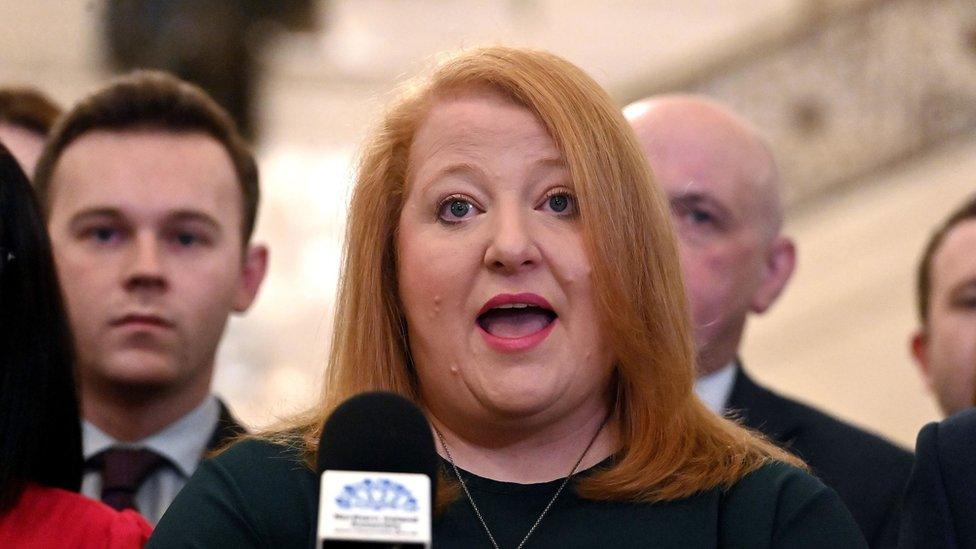
Naomi Long told Evening Extra leaks from within the executive caused her concerns during the pandemic
Speaking on Evening Extra on Wednesday, Naomi Long said leaks from within the executive during the pandemic caused her concerns at the time.
The justice minister said she "often found out what was going to be on the executive from colleagues in the media" and that this "caused a frustration".
This "damaged trust and confidence", she said.
Ms Long said she believed that TEO made their "best efforts" during "a very fragile environment and very difficult form of government" but admitted there are "lessons to be learned".
She also thinks most people involved would wish they "could have done better and differently on certain things".
The inquiry has published more than 200 documents including minutes of meetings, briefings, and guidance, as well as emails and messages being exchanged by senior officials.
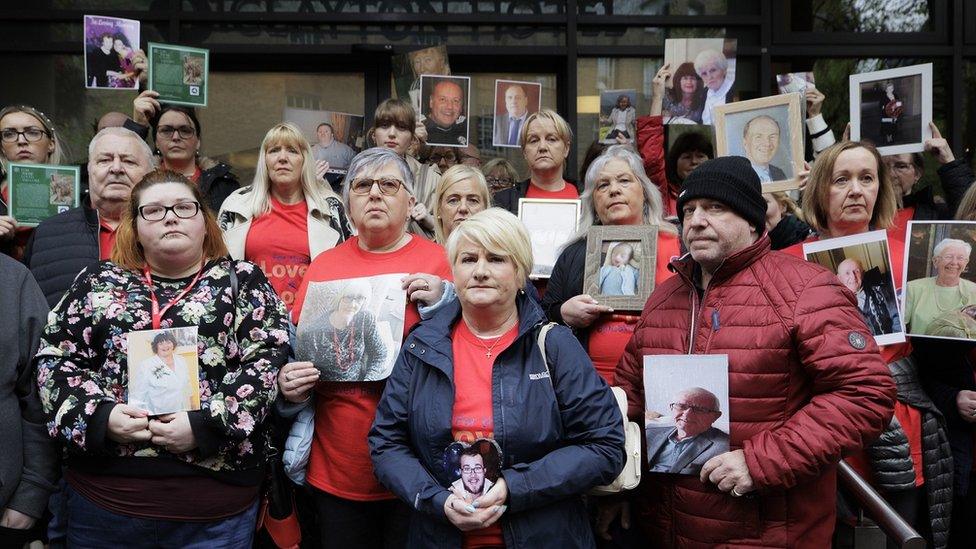
Bereaved families stood outside the Belfast hotel where the inquiry is being held on the first day of hearings
In them, Sir David Sterling wrote that even in a crisis ministers seemed keener on scoring points off each other rather than helping the citizen.
He said ministers had been "too quick to retreat into campaigning or community activist mode".
He said when they did have to make difficult decisions such as school closures and defining "essential" businesses they had been found wanting.
Related topics
- Published30 April 2024
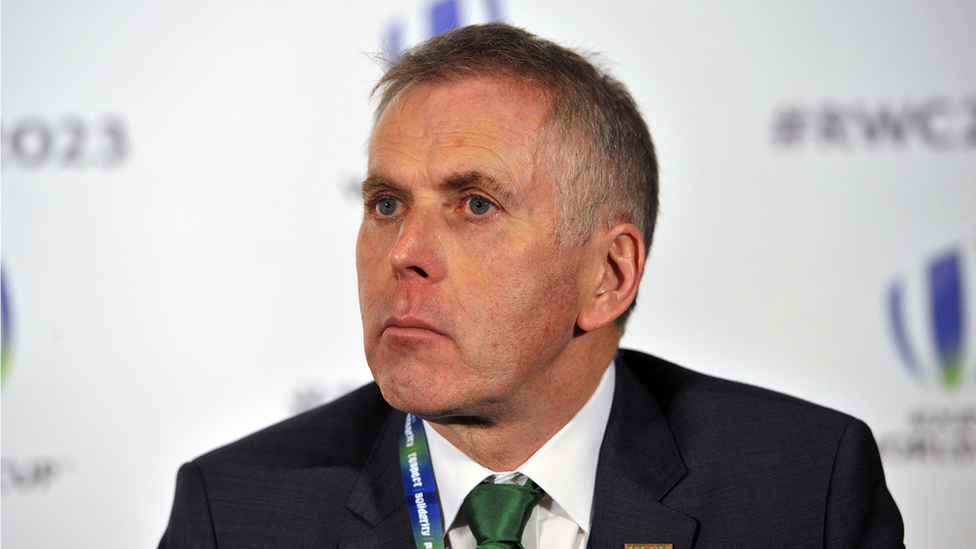
- Published29 April 2024
